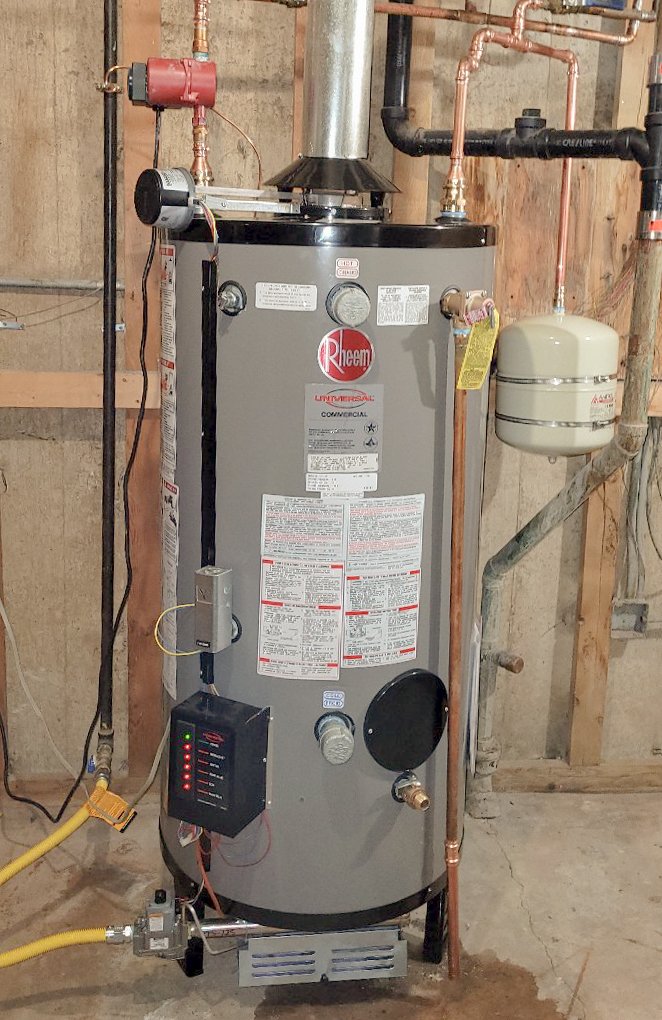Signs Your Water Heater is Failing: What to Watch For
Your water heater is an essential part of your daily life, providing hot water for showers, dishwashing, and laundry. But how do you know when it’s time to replace or repair it? Here are some telltale signs your water heater might be failing.
Inconsistent Water Temperatures
One of the first signs of trouble is inconsistent water temperature. If your water suddenly shifts from hot to cold or never gets hot enough, it could indicate issues with the thermostat or a buildup of sediment inside the tank.
Reduced Hot Water Supply
Noticing that you run out of hot water faster than usual? This could mean your water heater is losing its efficiency. Sediment buildup in the tank often reduces the amount of water that can be heated effectively.
Discolored Water
Rusty or murky water coming from your hot water tap is a clear red flag. This discoloration typically means there’s corrosion inside the water heater tank, which can lead to leaks and eventual tank failure if not addressed.
Strange Noises
Hearing popping, rumbling, or banging noises from your water heater? These sounds are often caused by sediment buildup that causes the tank to overheat and can damage the internal components over time.
Water Leaks
Water pooling around your water heater or visible leaks from the tank indicate a serious problem. Leaks can result from corrosion, a faulty pressure relief valve, or cracks in the tank, and require immediate attention to prevent water damage to your home.
Poor Water Quality
An unusual smell or taste in your hot water often points to bacterial growth inside the tank. This usually happens when the anode rod, which protects the tank from corrosion, becomes depleted. Replacing the anode rod can often resolve this issue.
Age of the Water Heater
Water heaters typically last between 8 to 12 years. If your unit is reaching this age range or older, it’s more likely to experience problems. Regular maintenance can help extend its life, but frequent issues might mean it’s time for a replacement.
Increased Energy Bills
A water heater that’s struggling to work efficiently can cause a noticeable increase in your energy bills. If your costs are rising without a change in usage, your water heater could be the culprit, and it may be time for an inspection or replacement.
What to Do Next
If you recognize any of these signs, it’s essential to take action. Regular maintenance can prevent many issues, but sometimes repairs or replacements are necessary. Consulting a professional plumber can help you determine the best course of action, ensuring you have a reliable supply of hot water and avoiding unexpected breakdowns.
DIY Tips to Extend Your Water Heater’s Lifespan
1. Flush the Tank Regularly: Sediment buildup can cause inefficiency and strange noises. Draining the tank to remove sediment once a year can help maintain performance and extend the lifespan of your water heater. Make sure to follow the manufacturer’s instructions or consult a professional if you’re unsure.
2. Check the Anode Rod: The anode rod helps prevent tank corrosion. Inspecting and replacing it when necessary can prevent rust and extend the life of your water heater. This is typically an easy task that can be done yourself, but if you’re unsure, a plumber can help.
By staying vigilant and performing regular maintenance, you can prevent many common water heater problems and ensure you always have a reliable source of hot water. If issues persist or you’re unsure about performing maintenance yourself, don’t hesitate to reach out to a professional for help like Superior Services.

